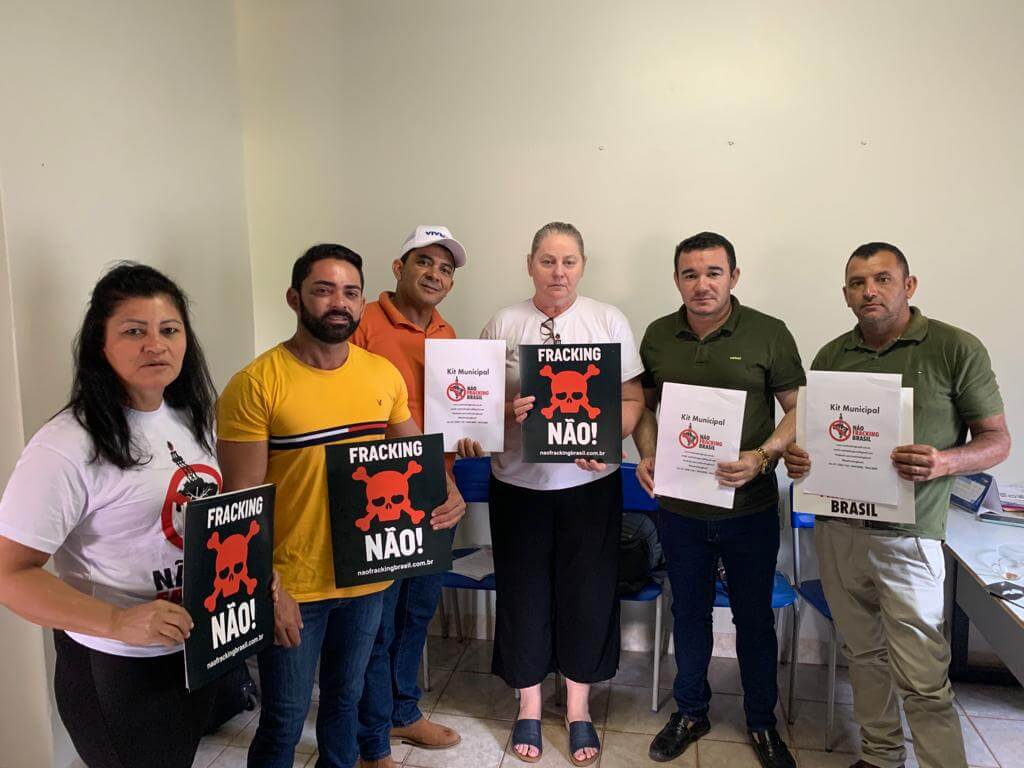Group of city councilors received the Coalition No Fracking Brazil for Water and Life for a conversation about the effects of the practice
What is fracking?
Fracking – also called hydraulic fracturing – is a process that involves injecting large volumes of water, chemicals and sand at high pressure into underground rock layers to release trapped natural gas. Despite being a technique already used in several countries, it is controversial because it causes environmental and ecological damage, including contamination of groundwater, release of greenhouse gases, induced earthquakes, etc.
The municipality of Riachão, in Maranhão, in the region of Chapada das Mesas, was visited by the team from COESUS – Coalition No Fracking Brazil for Water and Life, a campaign by the Arayara International Institute, on September 23, 2022. At the city hall councillors, a meeting was held with representatives of the local legislature, with the presence of the president of the house, Uelton Silva Canuto and councilors Welligton Alves Paz (known as Jaba), Edivan Oliveira da Silva (Edivan Paixão), Wanderson Moreira and Júnior dos Santos Pinto.
Aware of the negative impacts of fracking, the councilors undertook to deepen their studies on the subject and received a proposal for a municipal law that would make it difficult for oil companies to enter the exploration of shale gas through fracking in Riachão. Councilors said they were determined to take action to defend the municipality against the risks associated with this practice.
The presence of the COESUS team provided updated and scientifically based information on the impacts of fracking. During the meeting, studies and reports from other locations affected by this activity were shared, in order to make municipal representatives aware of the harmful effects on water, health, agriculture and the environment.












